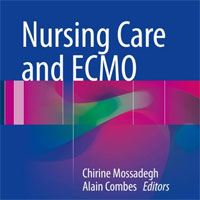Tag: ventilation

An Educational Intervention Optimizes the Use of Arterial Blood Gas Determinations Across ICUs
The large scale implementation of guidelines for ABG use reduced the number of inappropriately ordered ABG determinations over seven different multidisciplinary ICUs, without negatively impacting patient care. We saw a reduction... read more

Opening pressures and atelectrauma in ARDS
Data show that the prerequisites of the open lung strategy are not satisfied using PEEP up to 15 cmH2O and plateau pressure up to 30 cmH2O. For an effective open lung strategy, higher pressures are required. Therefore,... read more

National ICU Quality Indicators Revisited
The use of QI at a national level is a suitable method to focus on quality in healthcare. Independently of public access to the results, a local or national ICU network will have a lot to gain from engaging in the process... read more

Effects of Neuromuscular Blockers on Transpulmonary Pressures in Moderate to Severe ARDS
Thirty patients were included, 24 with moderate ARDS and 6 with severe ARDS. NMBA infusion was associated with an improvement in oxygenation in both moderate and severe ARDS, accompanied by a decrease in both plateau pressure... read more

Delirium: Thinking Clearly About a Foggy Issue
Benzodiazepines are one of the leading causes of delirium. These drugs are already falling out of favor in critical care settings for other reasons; they are not easily titratable, and research suggests they can prolong a... read more

A randomized placebo-controlled phase II study of a Pseudomonas vaccine in ventilated ICU patients
This phase II study has shown that IC43 vaccination of ventilated ICU patients produced a significant immunogenic effect. P. aeruginosa infection rates did not differ significantly between groups. In the absence of any difference... read more

New Infection Data and Sepsis-Guideline Critique at SCCM
The potential of probiotics to reduce nosocomial infections and ventilator-associated pneumonia in the critically ill and the latest data on readmissions will be among the major research advances presented here at the Society... read more

Liberation from Mechanical Ventilation in Critically Ill Adults
Official Executive Summary of an American Thoracic Society/American College of Chest Physicians Clinical Practice Guideline: Liberation from Mechanical Ventilation in Critically Ill Adults. The panel provides recommendations... read more
Spinraza Cuts Risk of Permanent Ventilation with SMA
Biogen announced new data from the Phase 3 ENDEAR study that showed a statistically significant reduction in the risk of death or permanent ventilation in Spinraza (nusinersen)-treated infants with spinal muscular atrophy... read more

In-Bed Cycling Feasible for ICU Patients on Ventilation
TryCYCLE was the first study in the CYCLE research program. In TryCYCLE, we determined it was safe and feasible to bike with mechanically ventilated medical surgical patients very early in their ICU stay.... read more

End-Inspiratory Pause Prolongation in ARDS Patients
Prolonging EIP allowed a significant decrease in Vt without changes in PaCO2 in passively ventilated ARDS patients. This produced a significant decrease in plateau pressure and driving pressure and significantly increased... read more

Non-invasive Respiratory Support and Methylxanthines Reduce Re-Intubations
In a meta-analysis of randomized studies evaluating efforts to reduce re-intubations and respiratory failure in preterm infants, non-invasive respiratory support and use of methylxanthines (theophylline, caffeine) were found... read more
Dexmedetomidine Use in Critically-Ill Children with Acute Respiratory Failure
Margaret Parker, MD, MCCM, speaks with Mary Jo C. Grant, APRN, PhD, about the article, "Dexmedetomidine Use in Critically-Ill Children with Acute Respiratory Failure," published in the December 2016 issue of Pediatric... read more

Skeletal muscle quality as assessed by CT-derived skeletal muscle density is associated with 6-month mortality in mechanically ventilated critically ill patients
Low skeletal muscle quality at ICU admission, as assessed by CT-derived skeletal muscle density, is independently associated with higher 6-month mortality in mechanically ventilated patients. Thus, muscle quality as well... read more








